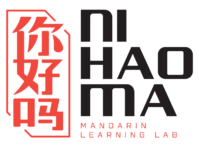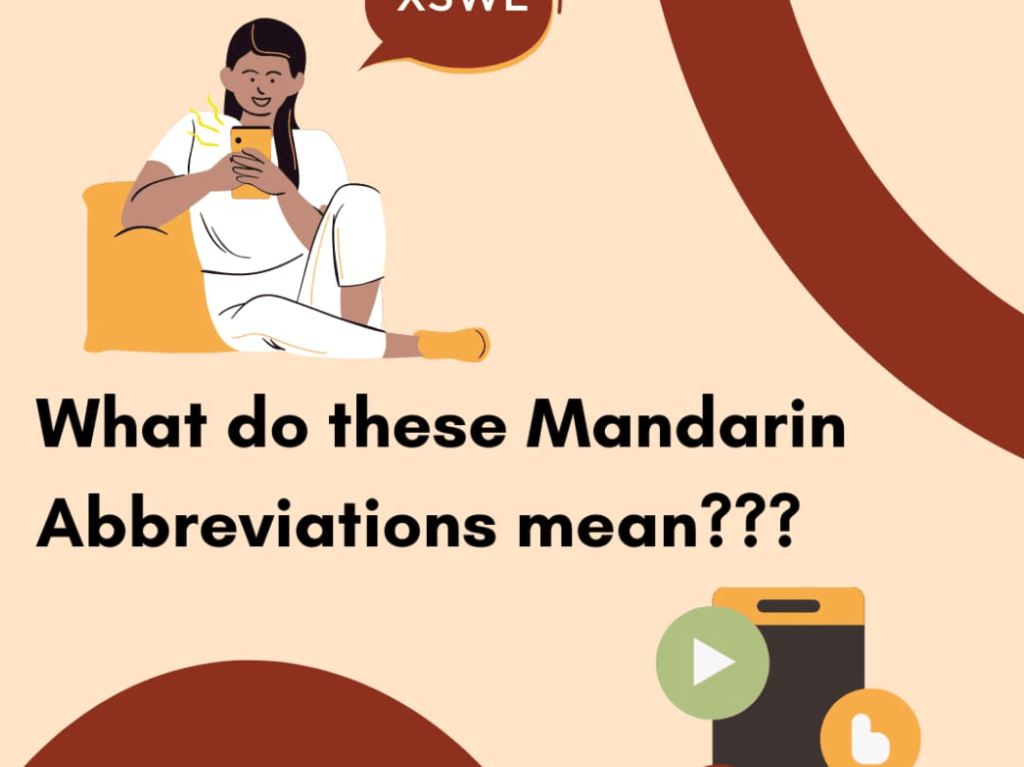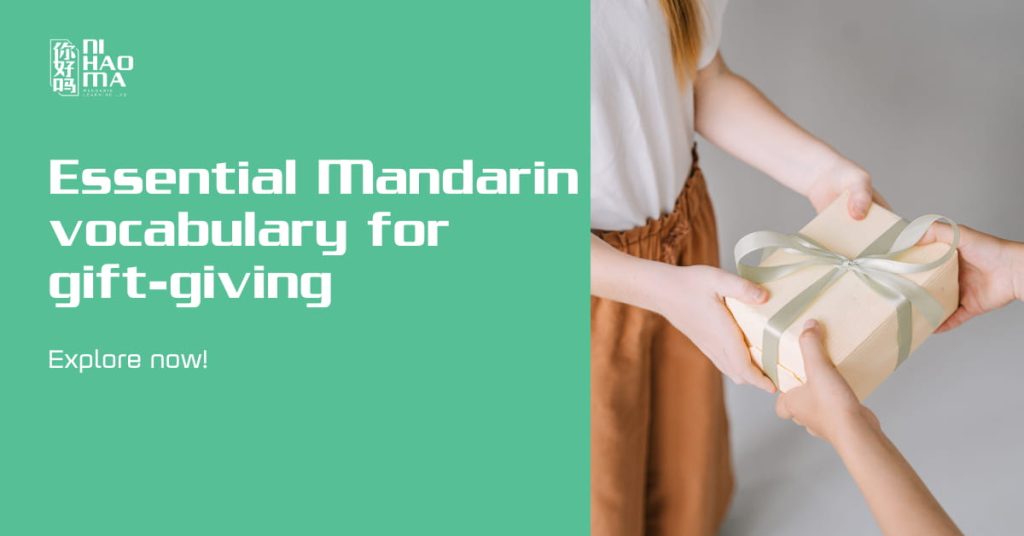When learning Chinese, expanding your vocabulary by topic is one of the most effective ways to improve both memory and real-life application. Among the many engaging topics, entertainment stands out as a fun and practical theme. Whether you enjoy chatting about movies, music, sports, or relaxing activities, mastering Chinese vocabulary about entertainment will help you connect better with native speakers and enrich your daily conversations.
In this article, Ni Hao Ma will walk you through over 60 essential Chinese vocabulary for entertainment along with practical examples of how to use them.
Chinese vocabulary about Entertainment
Chinese learning goes far beyond textbooks – it becomes much more exciting when applied to real life. Entertainment is a universal topic that makes conversations light, fun, and engaging.
Chinese Vocabulary About Entertainment Activities
Do you know how to say “watch a movie,” “listen to music,” or “play basketball” in Chinese? Here’s a comprehensive list of popular entertainment-related Chinese words you can start using today.
| Chinese | Pinyin | Meaning |
|---|---|---|
| 看电影 | kàn diànyǐng | Watch a movie |
| 听音乐 | tīng yīnyuè | Listen to music |
| 唱歌 | chànggē | Sing |
| 唱卡拉OK | chàng kǎlā OK | Sing karaoke |
| 跳舞 | tiàowǔ | Dance |
| 运动 | yùndòng | Exercise / Work out |
| 打篮球 | dǎ lánqiú | Play basketball |
| 踢足球 | tī zúqiú | Play soccer |
| 打羽毛球 | dǎ yǔmáoqiú | Play badminton |
| 打乒乓球 | dǎ pīngpāngqiú | Play table tennis |
| 游泳 | yóuyǒng | Swim |
| 逛街 | guàngjiē | Go shopping / stroll |
| 旅行 | lǚxíng | Travel |
| 拍照 | pāizhào | Take photos |
| 看书 | kàn shū | Read books |
| 刺绣 | cì xiù | Do embroidery |
| 看漫画 | kàn mànhuà | Read comics |
| 看小说 | kàn xiǎoshuō | Read novels |
| 玩游戏 | wán yóuxì | Play games |
| 打保龄球 | dǎ bǎolíngqiú | Play bowling |
| 上网 | shàngwǎng | Surf the internet |
| 看电视 | kàn diànshì | Watch TV |
| 轮滑 | lún huá | Roller-skate |
| 聊天 | liáotiān | Chat / gossip |
| 钓鱼 | diàoyú | Go fishing |
| 露营 | lùyíng | Go camping |
| 打牌 | dǎ pái | Play cards |
| 下棋 | xià qí | Play chess |
| 打台球 | dǎ táiqiú | Play billiards |
| 打麻将 | dǎ májiàng | Play mahjong |
| 慢跑 | mànpǎo | Jog |
| 爬山 | páshān | Hike / climb mountains |
| 野餐 | yěcān | Go on a picnic |
| 看演出 | kàn yǎnchū | Watch a performance |
| 听音乐会 | tīng yīnyuèhuì | Attend a concert |
| 参加派对 | cānjiā pàiduì | Join a party |
| 看比赛 | kàn bǐsài | Watch a sports match |
| 画画 | huàhuà | Draw / paint |
| 做手工 | zuò shǒugōng | Do handicrafts |
| 烹饪 | pēngrèn | Cook |
| 烘焙 | hōngbèi | Bake |
| 遛狗 | liú gǒu | Walk the dog |
| 射箭 | shèjiàn | Archery |
| 写作 | xiězuò | Write |
| 玩密室逃脱 | wán mìshì táotuō | Play escape room |

Chinese Vocabulary About Games and Entertainment
Have you ever wanted to invite your Chinese friends to play League of Legends, Werewolf, or even a round of Chinese Chess? If so, learning the right Chinese vocabulary about entertainment and games will make your conversations smoother and more fun!
| Chinese | Pinyin | Meaning |
|---|---|---|
| 游戏 | yóuxì | Game |
| 打游戏 | dǎ yóuxì | Play games |
| 电子游戏 | diànzǐ yóuxì | Video game |
| 网络游戏 | wǎngluò yóuxì | Online game |
| 手机游戏 | shǒujī yóuxì | Mobile game |
| 电脑游戏 | diànnǎo yóuxì | Computer game / PC game |
| 角色扮演游戏 | juésè bànyǎn yóuxì | Role-playing game (RPG) |
| 策略游戏 | cèlüè yóuxì | Strategy game |
| 冒险游戏 | màoxiǎn yóuxì | Adventure game |
| 射击游戏 | shèjī yóuxì | Shooting game |
| 赛车游戏 | sàichē yóuxì | Racing game |
| 格斗游戏 | gédòu yóuxì | Fighting game |
| 模拟游戏 | mónǐ yóuxì | Simulation game |
| 动作游戏 | dòngzuò yóuxì | Action game |
| 英雄联盟 | Yīngxióng Liánméng | League of Legends |
| 王者荣耀 | Wángzhě Róngyào | Honor of Kings |
| 绝地求生 | Juédì Qiúshēng | PUBG (PlayerUnknown’s Battlegrounds) |
| 原神 | Yuánshén | Genshin Impact |
| 使命召唤 | Shǐmìng Zhàohuàn | Call of Duty |
| 守望先锋 | Shǒuwàng Xiānfēng | Overwatch |
| 刀塔 2 | Dāotǎ Èr | Dota 2 |
| 桌游 | zhuōyóu | Board game |
| 拼图 | pīntú | Puzzle game |
| 纸牌游戏 | zhǐpái yóuxì | Card game |
| 扑克牌 | pūkèpái | Poker / Western playing cards |
| 麻将 | májiàng | Mahjong |
| 象棋 | xiàngqí | Chinese Chess |
| 国际象棋 | guójì xiàngqí | Chess |
| 围棋 | wéiqí | Go (Weiqi) |
| 飞行棋 | fēixíngqí | Aeroplane chess |
| 跳棋 | tiàoqí | Chinese checkers |
| 骰子游戏 | shǎizi yóuxì | Dice game |
| 捉迷藏 | zhuōmícáng | Hide and seek |
| 密室逃脱 | mìshì táotuō | Escape room |
| 真心话大冒险 | Zhēnxīnhuà Dà Màoxiǎn | Truth or Dare |
| 米勒山谷狼人 | Mǐlè Shāngǔ Lángrén | Werewolf |
| 大富翁 | Dàfùwēng | Monopoly |
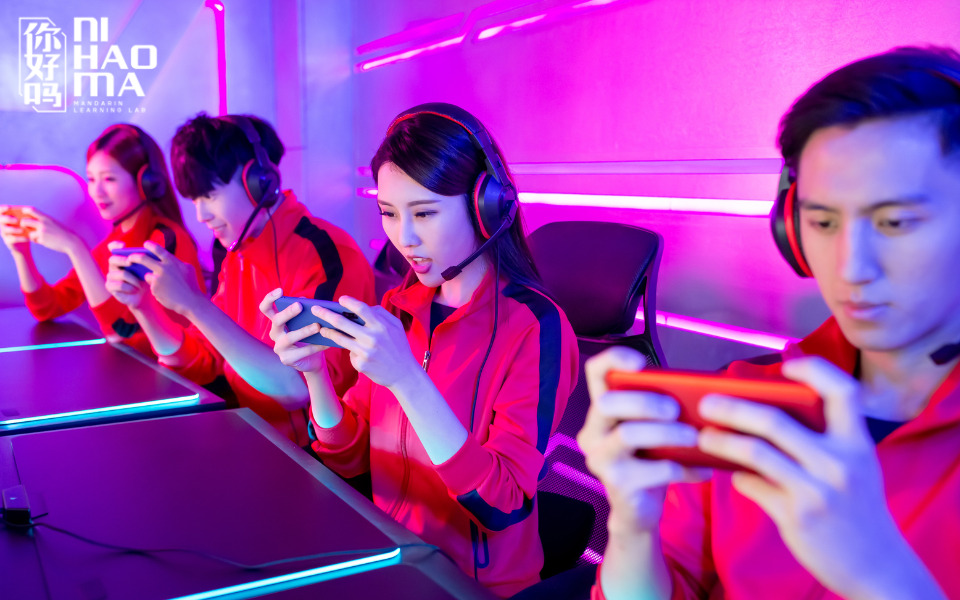
Chinese Vocabulary About Entertainment: Places to Have Fun
After long hours of studying or working, do you ever feel like watching a movie, singing karaoke, or enjoying a concert? If you want to invite your Chinese friends or colleagues to hang out but don’t know how to say those entertainment places in Chinese, this guide is for you!
| Chinese | Pinyin | Meaning |
|---|---|---|
| 游乐园 | yóulèyuán | Amusement park |
| 水上乐园 | shuǐshàng lèyuán | Water park |
| 电影院 | diànyǐngyuàn | Cinema / Movie theater |
| 广场 | guǎngchǎng | Square / plaza |
| 商场 | shāngchǎng | Shopping mall |
| 剧院 | jùyuàn | Theater |
| 博物馆 | bówùguǎn | Museum |
| 美术馆 | měishùguǎn | Art museum / gallery |
| 公园 | gōngyuán | Park |
| 步行街 | bùxíngjiē | Pedestrian street |
| 水族馆 | shuǐzúguǎn | Aquarium |
| 动物园 | dòngwùyuán | Zoo |
| 游泳馆 | yóuyǒngguǎn | Swimming pool |
| 体育馆 | tǐyùguǎn | Stadium / Sports hall |
| 射箭场 | shèjiàn chǎng | Archery range |
| 高尔夫球场 | gāo’ěrfū qiúchǎng | Golf course |
| KTV | KTV | Karaoke bar |
| 酒吧 | jiǔbā | Bar |
| 跳舞俱乐部 | tiàowǔ jùlèbù | Dance club |
| 咖啡馆 | kāfēiguǎn | Coffee shop |
| 度假村 | dùjiàcūn | Resort |
| 景区 | jǐngqū | Scenic area / Tourist attraction |
| 网吧 | wǎngbā | Internet café |
| 图书馆 | túshūguǎn | Library |
| 沙滩 | shātān | Beach |
| 滑雪场 | huáxuěchǎng | Ski resort |
| 游乐场 | yóulèchǎng | Outdoor playground |
| 夜市 | yèshì | Night market |
| 温泉 | wēnquán | Hot spring |
| 露天音乐会 | lùtiān yīnyuèhuì | Outdoor concert |
| 马戏团 | mǎxìtuán | Circus |
| 漫画咖啡馆 | mànhuà kāfēiguǎn | Manga café |
| 书店咖啡馆 | shūdiàn kāfēiguǎn | Book café |
Sample diologues with Chinese vocabulary about entertainment
One of the best ways to improve your Chinese is by practicing short conversations using topic-based vocabulary. With Chinese vocabulary about entertainment, you can easily role-play everyday situations like going to the cinema, attending concerts, or chatting about your favorite actors. Below is an example dialogue using entertainment-related words.
Conversation 1: Going to the Movies
A: 周末你有空吗?我们一起去看电影吧。
(Zhōumò nǐ yǒu kòng ma? Wǒmen yīqǐ qù kàn diànyǐng ba.)
Are you free this weekend? Let’s go watch a movie together.
B: 好啊!最近有什么好看的电影?
(Hǎo a! Zuìjìn yǒu shénme hǎokàn de diànyǐng?)
Sure! Are there any good movies showing lately?
A: 我听说《长城》正在上映,听起来很精彩。
(Wǒ tīngshuō “Chángchéng” zhèngzài shàngyìng, tīng qǐlái hěn jīngcǎi.)
I heard The Great Wall is now showing. It sounds really exciting.
B: 真的?我也想看。我喜欢历史题材的电影。
(Zhēn de? Wǒ yě xiǎng kàn. Wǒ xǐhuān lìshǐ tícái de diànyǐng.)
Really? I want to see it too. I love historical movies.
A: 那我们订周六晚上的票吧。
(Nà wǒmen dìng zhōuliù wǎnshang de piào ba.)
Let’s book tickets for Saturday night then.
B: 好的,顺便一起吃晚饭吧。
(Hǎo de, shùnbiàn yīqǐ chī wǎnfàn ba.)
Sounds good! Let’s grab dinner together too.
A: 没问题,我知道附近有一家很好吃的餐厅。
(Méi wèntí, wǒ zhīdào fùjìn yǒu yī jiā hěn hǎochī de cāntīng.)
No problem, I know a great restaurant nearby.
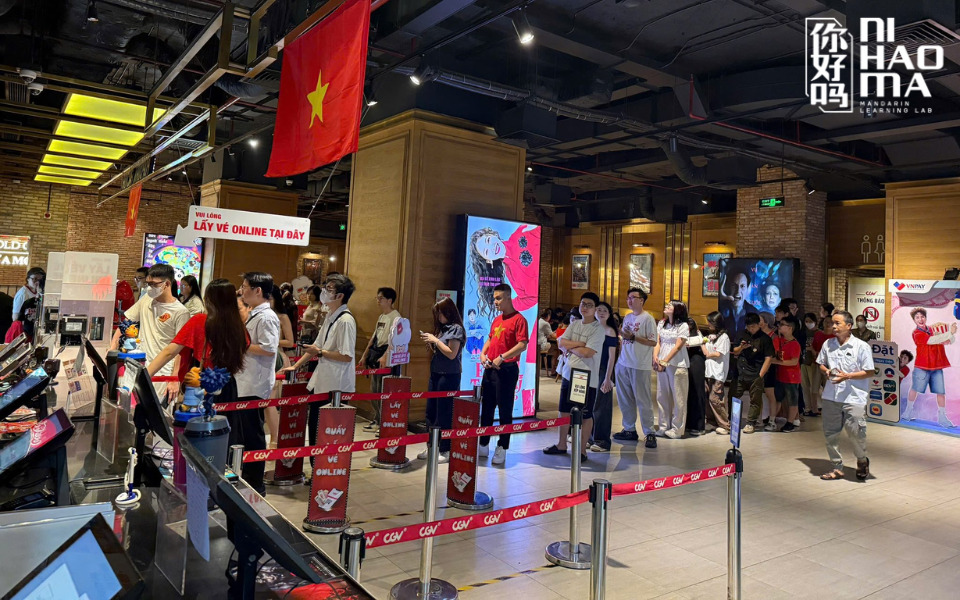
Conversation 2: Talking About Music
A: 你平时喜欢听什么类型的音乐?
(Nǐ píngshí xǐhuān tīng shénme lèixíng de yīnyuè?)
What kind of music do you usually like to listen to?
B: 我最喜欢流行音乐,旋律很好听。你呢?
(Wǒ zuì xǐhuān liúxíng yīnyuè, xuánlǜ hěn hǎotīng. Nǐ ne?)
I love pop music the most — the melodies are really catchy. What about you?
A: 我比较喜欢古典音乐,特别是钢琴曲。
(Wǒ bǐjiào xǐhuān gǔdiǎn yīnyuè, tèbié shì gāngqín qǔ.)
I prefer classical music, especially piano pieces.
B: 听古典音乐会不会有点无聊?
(Tīng gǔdiǎn yīnyuè huì bù huì yǒudiǎn wúliáo?)
Isn’t listening to classical music a bit boring?
A: 不会啊,听起来很放松,还能帮助集中注意力。
(Bù huì a, tīng qǐlái hěn fàngsōng, hái néng bāngzhù jízhōng zhùyì lì.)
Not at all! It’s very relaxing and even helps me focus better.
B: 那下次你给我推荐一些好听的曲子吧。
(Nà xiàcì nǐ gěi wǒ tuījiàn yīxiē hǎotīng de qǔzi ba.)
Then next time, you should recommend me some good songs.
A: 没问题,我有一个播放列表,可以分享给你。
(Méi wèntí, wǒ yǒu yīgè bòfàng lièbiǎo, kěyǐ fēnxiǎng gěi nǐ.)
Sure! I have a playlist I can share with you.

Conversation 3: Talking About Sports
A: 你平常喜欢做什么运动?
(Nǐ píngcháng xǐhuān zuò shénme yùndòng?)
What kind of sports do you usually like to do?
B: 我经常打篮球,有时候也踢足球。
(Wǒ jīngcháng dǎ lánqiú, yǒushíhòu yě tī zúqiú.)
I often play basketball, and sometimes I play soccer too.
A: 真不错!我比较喜欢游泳,每周都去一次。
(Zhēn bùcuò! Wǒ bǐjiào xǐhuān yóuyǒng, měi zhōu dōu qù yīcì.)
That’s great! I prefer swimming — I go once a week.
B: 游泳对身体很好,不过我怕冷水。
(Yóuyǒng duì shēntǐ hěn hǎo, bùguò wǒ pà lěngshuǐ.)
Swimming is good for your health, but I’m afraid of cold water.
A: 哈哈,可以夏天一起去游泳。
(Hāhā, kěyǐ xiàtiān yīqǐ qù yóuyǒng.)
Haha, we can go swimming together in the summer then!
B: 好的,到时候一起锻炼也很有趣。
(Hǎo de, dào shíhòu yīqǐ duànliàn yě hěn yǒuqù.)
Sure! Exercising together will be fun.
Final Thoughts
If you’re learning Chinese, mastering Chinese vocabulary about entertainment is one of the most enjoyable and practical ways to improve your communication skills. Remember — vocabulary doesn’t have to be boring! When you learn through real-life contexts and dialogues like the ones above, your memory retention improves, and studying becomes much more fun. We hope this guide from Ni Hao Ma has helped you expand your entertainment-related Chinese vocabulary and confidence in using it. Stay tuned for more fun and useful Chinese learning content coming soon!
